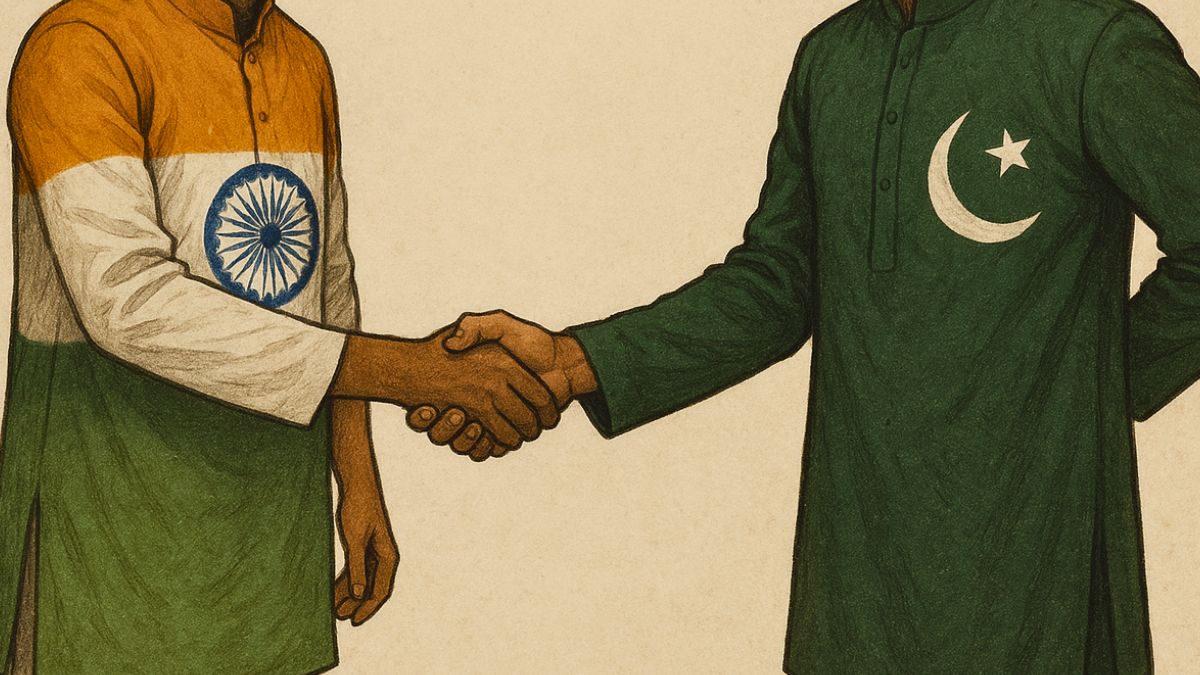The tensions between India and Pakistan are not new and have been simmering for over seven decades now. Most recently, the two nuclear-armed neighbours were engaged in a conflict after 3 Pakistani terrorists killed 26 civilians in Pahalgam on April 22. In retaliation, India launched Operation Sindoor, and the two continued to fight until a ceasefire was announced around 4 days after.
Despite the ceasefire, the issues between India and Pakistan still persist. Islamabad has, however, now stated that it is ready for a dialogue with India. Pakistan’s Foreign Minister and Deputy PM Ishaq Dar has reiterated that his country is open to resuming dialogue with India — but only in what he described as a “dignified and respectful manner.”
Speaking to the media on Friday, Dar said Pakistan is prepared to discuss all outstanding issues, including Kashmir, under the framework of a composite dialogue. Yet, in the same breath, he underlined that “Pakistan will not beg for talks.”
What is India’s stand on dialogue with Pakistan?
New Delhi’s position remains firm that any talks with Islamabad will only be about Pakistan-occupied Kashmir and the issue of terrorism. Indian officials have consistently rejected attempts to bring back the old format of composite dialogue, arguing that the security and territorial context has fundamentally shifted.
India-Pakistan composite dialogue: What is it and what happened?
The composite dialogue, first launched in 2003 during General Pervez Musharraf’s tenure, sought to address eight key “baskets” of bilateral disputes, ranging from Kashmir to trade and people-to-people ties. But the process came to an abrupt halt after the 2008 Mumbai terror attacks, which India blamed on Pakistan-based groups.
Since then, efforts to restore the mechanism have floundered amid recurring cycles of hostility, cross-border terror strikes, and diplomatic freezes.
How did the recent conflict change the equation?
The latest phase of confrontation came after the April 22 Pahalgam terror attack in Jammu and Kashmir that killed 26 people. India retaliated with Operation Sindoor, a series of precision strikes on terror hubs in Pakistan and Pakistan-occupied Kashmir on May 7.
Pakistan responded with attempted attacks on Indian military bases between May 8 and 10. In turn, Indian forces carried out counter-strikes on several Pakistani military installations. The exchanges involving drones, missiles and heavy firepower ended only after both sides reached an understanding on May 10 to halt hostilities.
How is Pakistan projecting its narrative globally?
Dar claimed that Pakistan’s diplomatic efforts during the recent flare-up ensured that Islamabad’s position was “accepted and acknowledged at the global level.” He said Pakistan’s forces demonstrated strength “in the air and on land,” and cautioned India against “any provocation.”
Significantly, the Pakistani FM expanded the threat matrix by asserting that Pakistan was ready to retaliate “even through sea” if necessary.
India-Pakistan relations: What lies ahead?
While Dar’s remarks signal a willingness to reopen the diplomatic track, they also underscore the entrenched mistrust and hardened positions on both sides. For now, the shadow of the recent conflict, coupled with India’s sharper focus on counter-terrorism and PoK, leaves little room for optimism about an immediate thaw.
The question, as always, remains – can dialogue ever take precedence over confrontation in the India-Pakistan equation?
